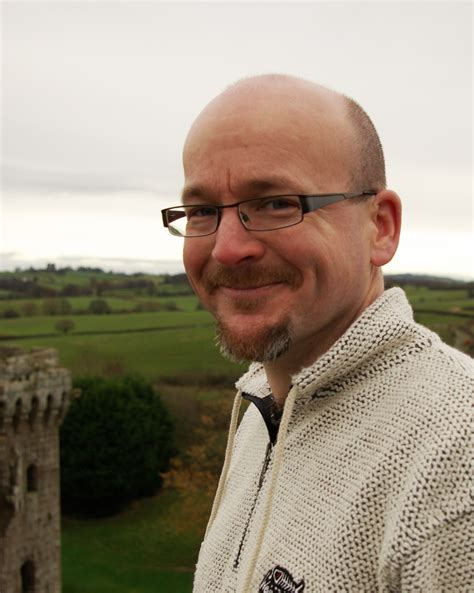A Quote by Tim Lebbon
It wasn't a case of me sitting down and thinking, right then, what shall I do with my life? Airline pilot? Plumber? Guitar manufacturer? Writer .... yeah, writer. I've always loved writing, from a very early age--I guess I was writing my first stories when I was still in single digits. It progressed, and the love of writing grew in my mind and is still growing. Doing it full-time, there are different stresses and tensions, and the business side of it comes to the fore sometimes. But I still love it, and I'm always thankful that I can do what I do and make a living from it.
Quote Topics
Age
Airline
Always
Business
Case
Different
Doing
Down
Down And
Early
Early Age
First
Fore
Full
Full-Time
Grew
Growing
Guess
Guitar
Life
Living
Love
Loved
Make
Me
Mind
My Life
Pilot
Plumber
Right
Shall
Side
Single
Sitting
Sitting Down
Sometimes
Still
Stories
Thankful
Then
Thinking
Time
Very
Very Early Age
Writer
Writing
Yeah
Related Quotes
I guess I've always wanted to create my own stories, but writing was one of those things where I thought that I would never actually do it. I respected writers too much, and what they do, to think that I was one of them - and I still feel that way a lot of the time. I still feel uncomfortable calling myself a writer. I'm like, "No, I'm an actor who writes sometimes."
On the craft level, writing for children is not so different from writing for adults. You still have to have a story that moves forward. You still have to have the tools of the trade down. The difference arises in the knowledge of who you're writing for. This isn't necessary true of writing for adults.
If you can still write in spite of the fact that you're not getting paid, that nobody cares about what you're writing, that nobody wants to publish it, that everybody is telling you to do something else, and you still want to and you still enjoy it and you can't stop doing it...then you're a writer.
I was a lot dumber when I was writing the novel. I felt like worse of a writer because I wrote many of the short stories in one sitting or over maybe three days, and they didn't change that much. There weren't many, many drafts. That made me feel semi-brilliant and part of a magical process. Writing the novel wasn't like that. I would come home every day from my office and say, "Well, I still really like the story, I just wish it was better written." At that point, I didn't realize I was writing a first draft. And the first draft was the hardest part.
I haven’t had trouble with writer’s block. I think it’s because my process involves writing very badly. My first drafts are filled with lurching, clichéd writing, outright flailing around. Writing that doesn’t have a good voice or any voice. But then there will be good moments. It seems writer’s block is often a dislike of writing badly and waiting for writing better to happen.
Still, I kept writing. I had no guarantee that I would someday win awards for writing. Heavens, the only person during that time who seemed to think I could write something worth publishing was my loyal husband. But I always remembered the professor from graduate school who urged me to write and who recommended me for that first writing assignment in 1964. When I protested to Sara Little that I didn't want to add another mediocre writer to the world, she gently reminded me that if I didn't dare mediocrity, I would never write anything at all.
Just write. If you have to make a choice, if you say, 'Oh well, I'm going to put the writing away until my children are grown,' then you don't really want to be a writer. If you want to be a writer, you do your writing... If you don't do it, you probably don't want to be a writer, you just want to have written and be famous—which is very different.






































